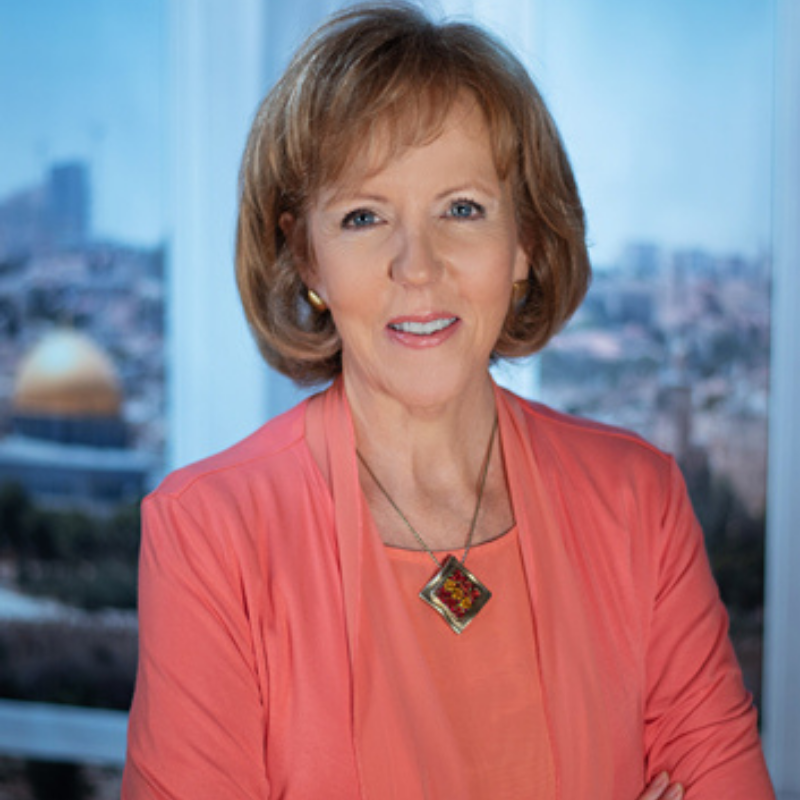Israel’s critics and enemies often refer to Zionism as “settler colonialism.” This charge intensified after Hamas broke an existing ceasefire agreement, invaded southern Israel, and brutally murdered more than 1,200 people back on October 7, 2023, prompting Israel’s declaration of war. Within weeks, rather than supporting Israel’s right to defend itself, pro-Palestinian protests erupted around the world, complete with signs using such phrases as “Zionism Is Settler Colonialism” to describe the State of Israel.
Though Israel’s earliest Zionist settlers (those immigrating to Israel in the first and second waves of Aliyah from Europe in the late 1800s and early 1900s) referred to themselves as colonists, it was in the broad sense of establishing settlements in a territory they previously inhabited.
The questions to ask are who had inhabited that territory previously and when.
What Is Settler Colonialism?
Let’s first define colonialism. Colonialism is the process of a country taking full or partial political control of a more vulnerable country or territory by exploiting its people and natural resources. The colonizers, often by force, attempt to impose their religion, language, culture, and political practices on the indigenous population. With colonialism, the “mother country” advances its economic, cultural, or religious interests by implanting its own people on foreign soil.
Settler colonialism is a type of colonialism characterized by the replacement and elimination of indigenous populations with settlers who establish their own societies in the land to occupy it and establish sovereignty over it permanently.
One example of colonialism is the British Empire’s rule over India, in which it imposed its language, culture, and system of governance on a native population while exploiting its natural resources. Ultimately, its goal was to expand its territory and enrich the mother country.
In contrast, Zionism was not an act of conquest, but a movement aimed at the return of the Jewish people to their ancestral homeland.
Settler Colonization and Zionism
Those who say Zionism is settler colonialism tout Jewish immigration to and settlement of Israel as an attempt to push Arab inhabitants out of the land to create an exclusive ethno-state. However, Zionism—the belief that the Jewish people have a right to self-determination in the land to which they are indigenous—does not fit the definition of settler colonialism for several reasons.
1. Jewish settlers have never been an extension of any “mother country.” Rather, the early settlers met the definition of refugees escaping persecution. Those who call Israel a settler colonialist nation redefine the term “refugee” to mean “oppressor” and ignore the long history of the Jewish people’s connection to their ancestral land—as well as the continuous existence of a Jewish community whose ancestors never left. The first olim (Hebrew for “immigrants”) who came to Israel in the late 1800s left Russia to build a new society based on their ancient roots in the land of Israel, not to represent Russian interests.
2. Early Jewish settlers legally purchased land across Ottoman Palestine from absentee landowners, many of whom were Arabs. The settlers did not attempt to displace or push out Arabs living in the land; rather, Jewish settlers believed Arabs, many of whom were struggling to survive, would benefit from the wealth and progress Jews brought with them, and welcomed Arabs to be a part of it.
3. Early Jewish settlers were not entering a land to which they had no historical connection but were attempting to reinhabit a piece of real estate where their ancestors had lived continuously, though often in small numbers, for centuries. They sought to reestablish a society and revive a culture, language, and religion that had prevailed there almost three millennia earlier. For example, Hebrew—long reserved for prayer and study—was revived as an everyday, spoken language. And communities like Petah Tikvah, founded in 1878, and Tel Aviv, established in 1909 outside Jaffa, were built from the ground up by Jewish people who had returned to their ancestral land.
4. An important fact that proves these Zionist immigrants did not push Arabs off the land is the documented barrenness of the region. When the famous travel writer, Mark Twain, visited the Holy Land in the nineteenth century, he wrote: “Palestine sits in sackcloth and ashes … it is a barren, desolate, land … Her greatest need is that of a population.” Analysis of immigration records reveals that as the Jewish communities in Palestine grew and created jobs, Arabs moved in from surrounding countries. Therefore, the Jewish and Arab populations increased simultaneously alongside each other.
5. The indigenous population of Palestine is the Jewish people. Their continual presence in their promised land goes back 4,000 years to the time of Abraham, corroborated by archaeological, biblical, and extrabiblical evidence. Excavations in the City of David in Jerusalem, for example, continually reveal relics of ancient Jewish governance and daily life, affirming the Jewish people’s connection there. And the Dead Sea Scrolls, first discovered in 1947, have provided written evidence of Jewish religious practices dating back over 2,000 years.
6. Much of the Jewish population in Israel today is not even from Europe but the Middle East, expelled from Arab countries upon the State of Israel’s birth in 1948. Some 800,000 Mizrachi (eastern) Jews made their way to Israel with nothing but the clothes on their backs. It is estimated that these refugees left behind $100 billion worth of properties, businesses, and belongings in lands where their ancestors had lived for centuries.
Characterizing Zionism as a “settler colonial” enterprise is based on false information and a skewed view of history. It is a lie political in nature that does not describe Israel’s origin or current population.
The media and academia’s attempts to frame Zionism as settler colonialism reveal this generation’s elevation of political activism over critical inquiry. It is yet another smear campaign bent on undermining Israel by challenging its founding and disconnecting it from the family of nations.
This article was originally published on May 14, 2024, at: https://icejusa.org/2024/05/14/is-zionism-settler-colonialism/
Photo Credit: ©Getty Images/Nick Brundle Photography




